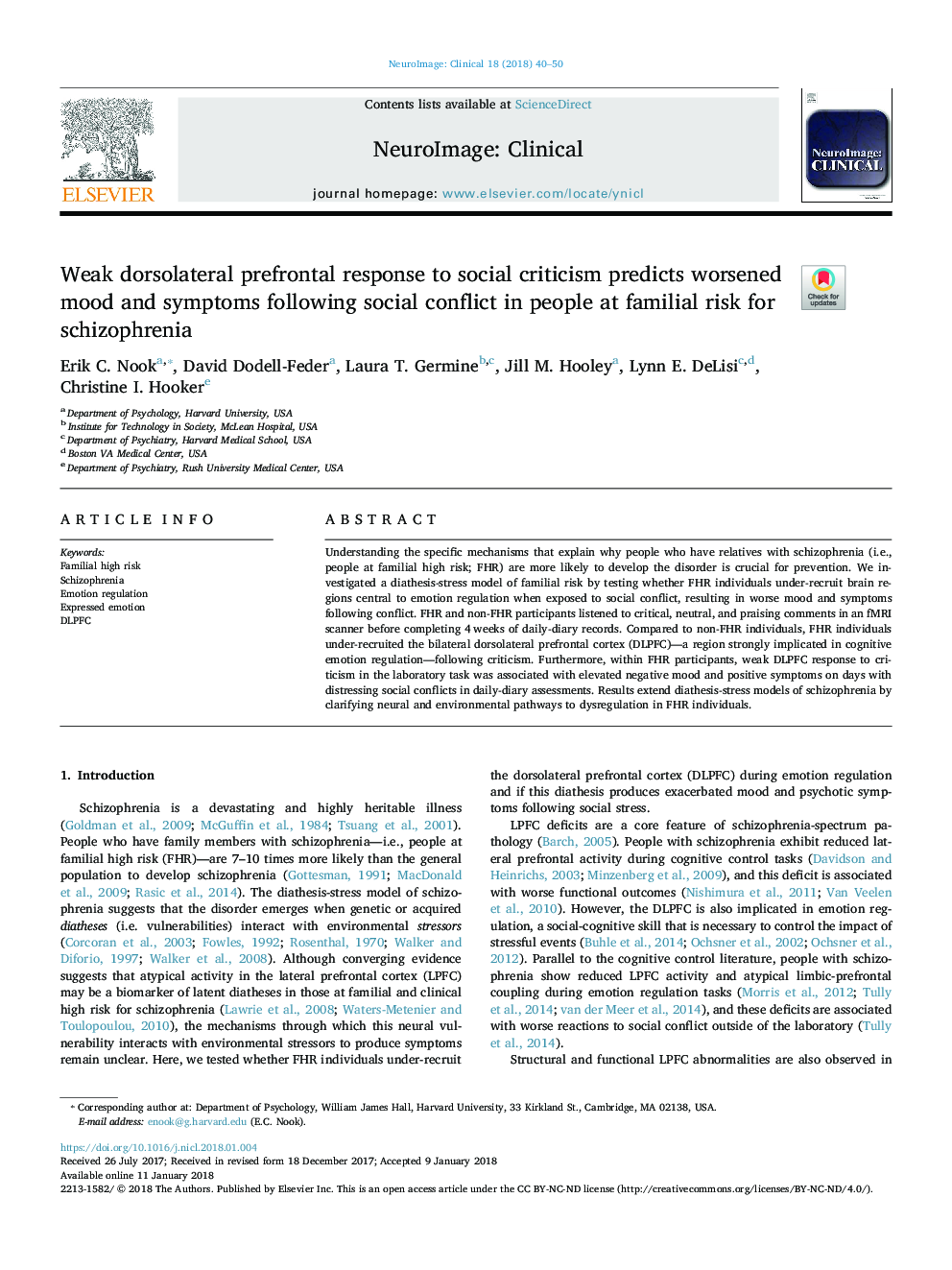| کد مقاله | کد نشریه | سال انتشار | مقاله انگلیسی | نسخه تمام متن |
|---|---|---|---|---|
| 8687668 | 1580949 | 2018 | 11 صفحه PDF | دانلود رایگان |
عنوان انگلیسی مقاله ISI
Weak dorsolateral prefrontal response to social criticism predicts worsened mood and symptoms following social conflict in people at familial risk for schizophrenia
ترجمه فارسی عنوان
ضعف پاسخ دلفلاندی پیش از پاسخ به نقد اجتماعی، خلق و نشانه های بدتر و علائم ناشی از تعارض اجتماعی در افراد مبتلا به اسکیزوفرنی خانوادگی را پیش بینی می کند
دانلود مقاله + سفارش ترجمه
دانلود مقاله ISI انگلیسی
رایگان برای ایرانیان
کلمات کلیدی
موضوعات مرتبط
علوم زیستی و بیوفناوری
علم عصب شناسی
روانپزشکی بیولوژیکی
چکیده انگلیسی
Understanding the specific mechanisms that explain why people who have relatives with schizophrenia (i.e., people at familial high risk; FHR) are more likely to develop the disorder is crucial for prevention. We investigated a diathesis-stress model of familial risk by testing whether FHR individuals under-recruit brain regions central to emotion regulation when exposed to social conflict, resulting in worse mood and symptoms following conflict. FHR and non-FHR participants listened to critical, neutral, and praising comments in an fMRI scanner before completing 4â¯weeks of daily-diary records. Compared to non-FHR individuals, FHR individuals under-recruited the bilateral dorsolateral prefrontal cortex (DLPFC)-a region strongly implicated in cognitive emotion regulation-following criticism. Furthermore, within FHR participants, weak DLPFC response to criticism in the laboratory task was associated with elevated negative mood and positive symptoms on days with distressing social conflicts in daily-diary assessments. Results extend diathesis-stress models of schizophrenia by clarifying neural and environmental pathways to dysregulation in FHR individuals.
ناشر
Database: Elsevier - ScienceDirect (ساینس دایرکت)
Journal: NeuroImage: Clinical - Volume 18, 2018, Pages 40-50
Journal: NeuroImage: Clinical - Volume 18, 2018, Pages 40-50
نویسندگان
Erik C. Nook, David Dodell-Feder, Laura T. Germine, Jill M. Hooley, Lynn E. DeLisi, Christine I. Hooker,
